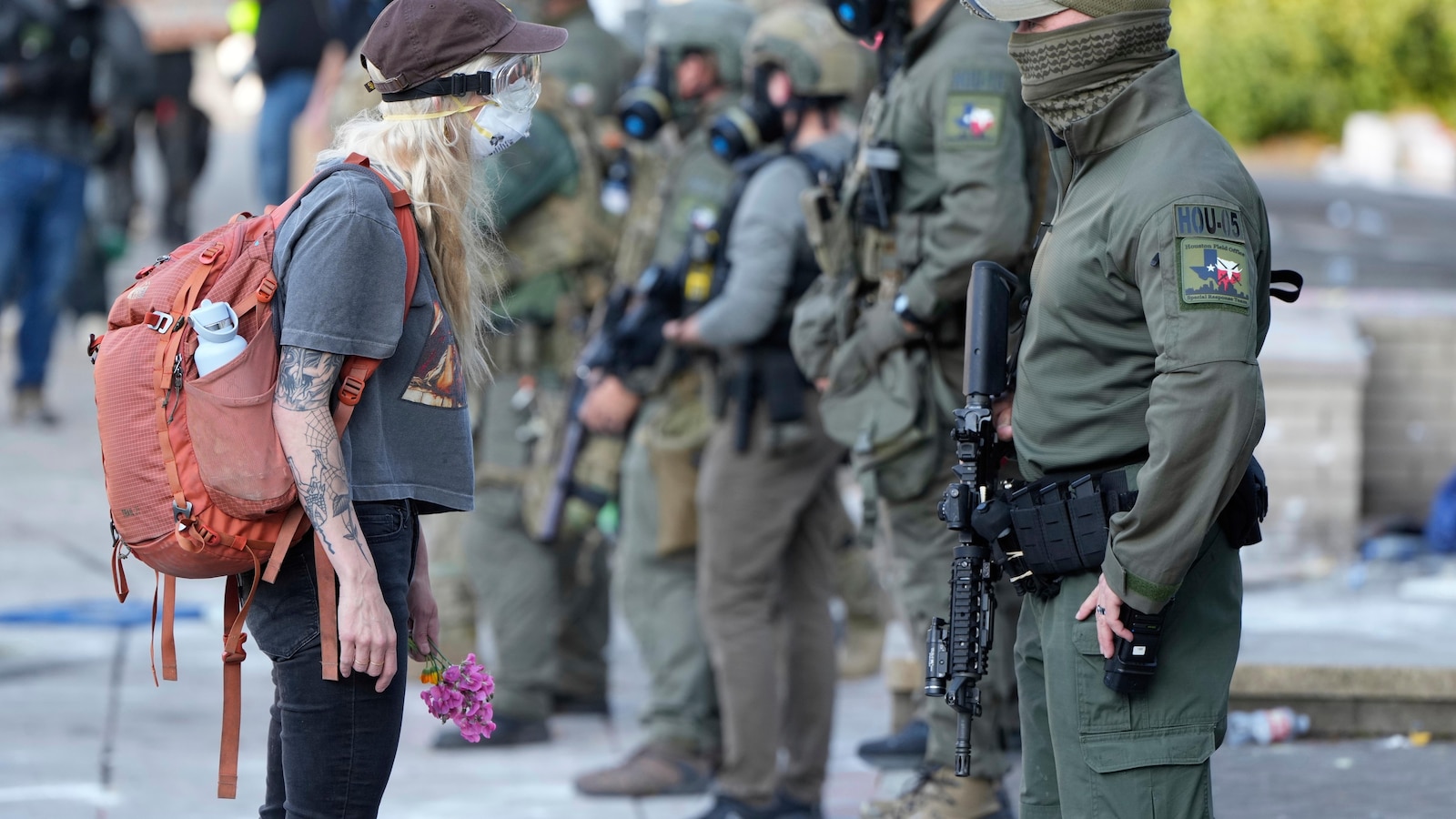Federal Judge Blocks Trump Administration's National Guard Deployment to Portland
A federal judge in Oregon has temporarily blocked the Trump administration from deploying the National Guard to Portland. The ruling, issued on Saturday, comes in response to a lawsuit filed by the state and city, challenging the legality of the deployment. U.S. District Judge Karin Immergut issued the order pending further arguments in the suit. She argued that the situation in Portland didn't merit such federal involvement.
Judge's Reasoning
Judge Immergut, a Trump appointee, stated that the relatively small protests in Portland did not justify the use of federalized forces and that allowing the deployment could harm Oregon's state sovereignty. The judge referenced a long-standing tradition of resistance to government overreach in the form of military intrusion into civil affairs. She added that her restraining order will expire Oct. 18, though she suggested it could be extended. She scheduled a hearing for Oct. 17 to address that question.
"This country has a longstanding and foundational tradition of resistance to government overreach, especially in the form of military intrusion into civil affairs," Immergut wrote. "This historical tradition boils down to a simple proposition: this is a nation of Constitutional law, not martial law."
Trump Administration's Response
The Trump administration has signaled its intention to appeal the ruling to the 9th U.S. Circuit Court of Appeals. White House spokesperson Abigail Jackson stated that "President Trump exercised his lawful authority to protect federal assets and personnel in Portland following violent riots and attacks on law enforcement." The administration maintains that the deployment is necessary to safeguard federal property and personnel.
Oregon Officials' Reaction
Oregon Attorney General Dan Rayfield called the ruling "a healthy check on the president," saying it "reaffirms what we already knew: Portland is not the president's war-torn fantasy." He argued that the deployment seemed like an attempt to normalize the presence of the U.S. military in cities for political purposes. Portland Mayor Keith Wilson also celebrated the ruling, asserting that the city is peaceful and capable of maintaining order.
The Context of the Protests
The protests in Portland have largely centered around the U.S. Immigration and Customs Enforcement (ICE) building. While the Trump administration described the city as "war-ravaged" with "domestic terrorists," Oregon officials described the protests as small and sedate, with few arrests in recent months. Prior to the deployment announcement, the protests typically involved a couple dozen people, and the Portland Police Bureau generally only intervened in cases of vandalism or criminal activity.
Broader Implications
This situation is part of a broader trend of the Trump administration deploying or threatening to deploy federal troops to cities, particularly those led by Democrats. Similar deployments have occurred in Los Angeles, Washington, D.C., and Memphis, prompting legal challenges and concerns about federal overreach. A federal judge previously ruled a deployment of troops to Los Angeles illegal, though the ruling is stayed pending appeal.
| Key Figure | Position | Perspective |
|---|---|---|
| Karin Immergut | U.S. District Judge | Ruled against the National Guard deployment |
| Donald Trump | President of the United States | Ordered the deployment |
| Dan Rayfield | Oregon Attorney General | Challenged the deployment |
 Visit the website
Visit the website





